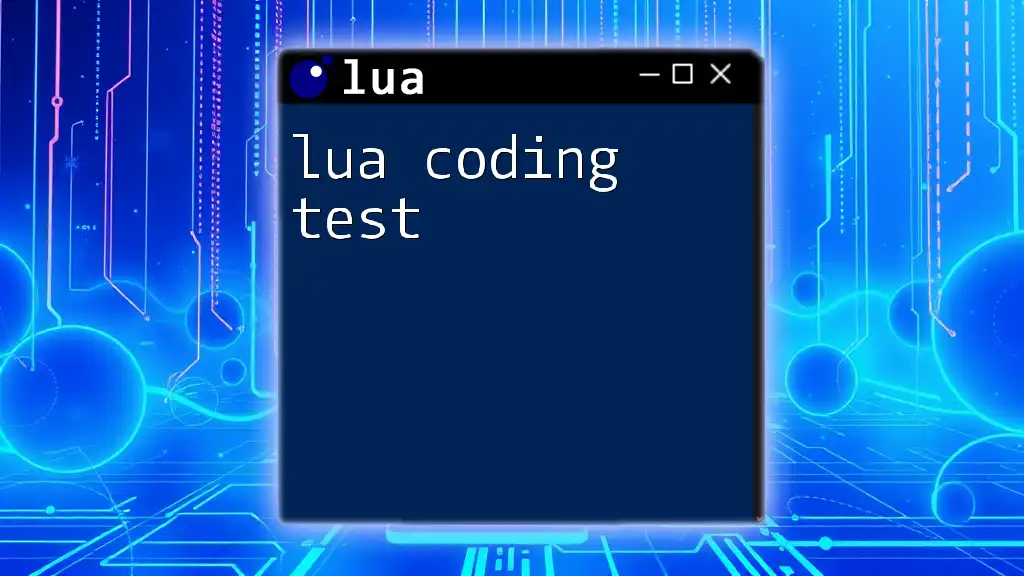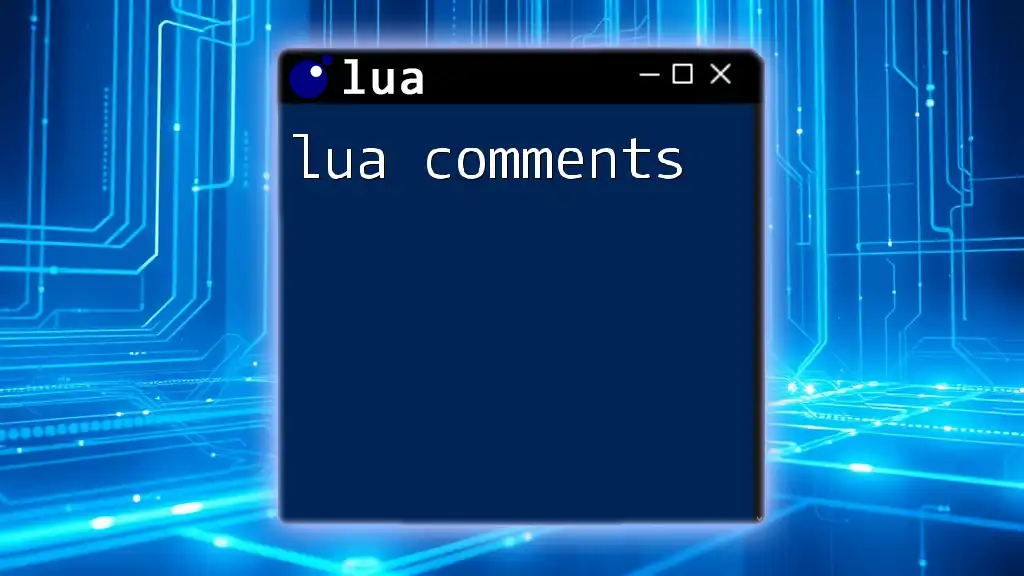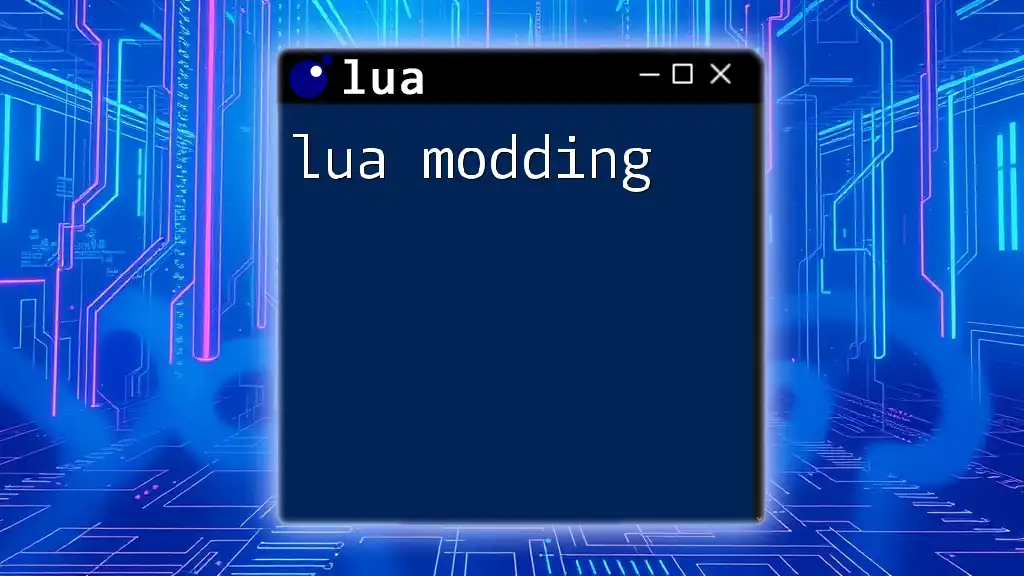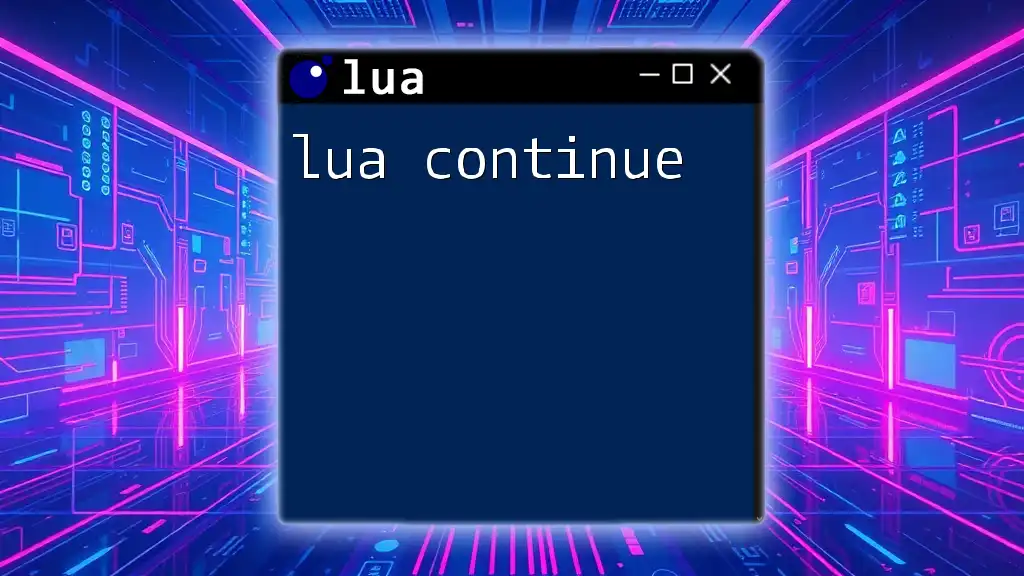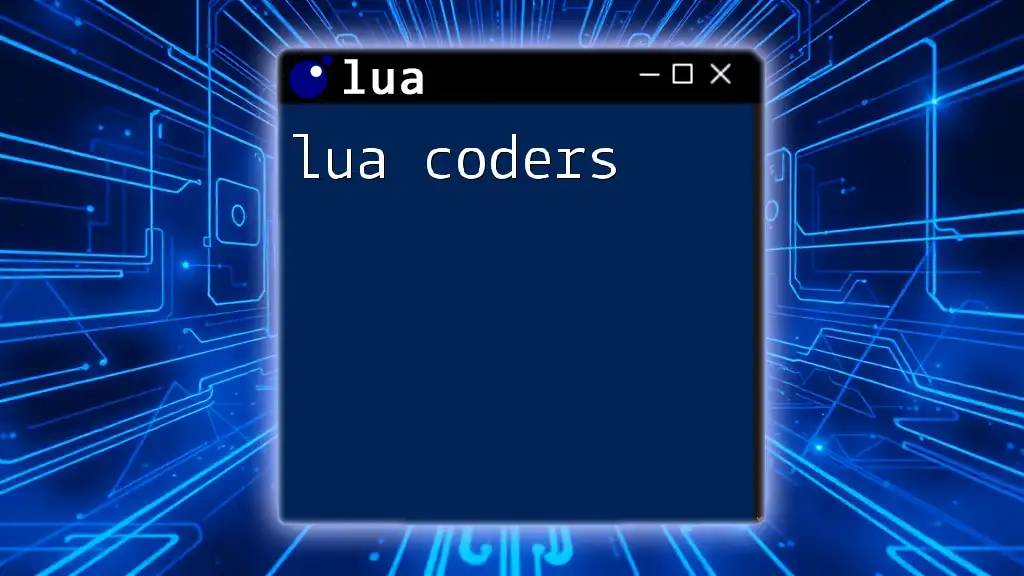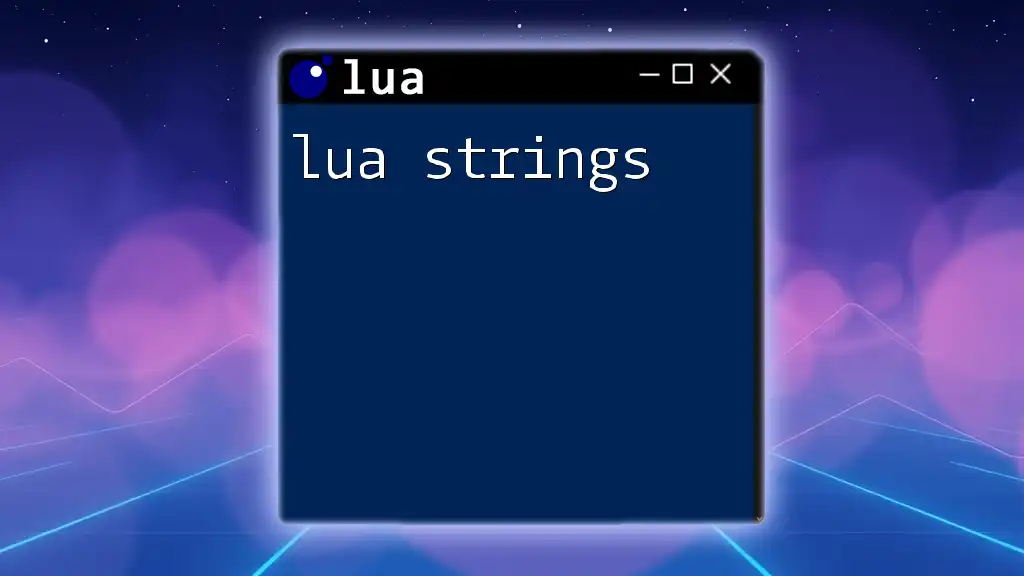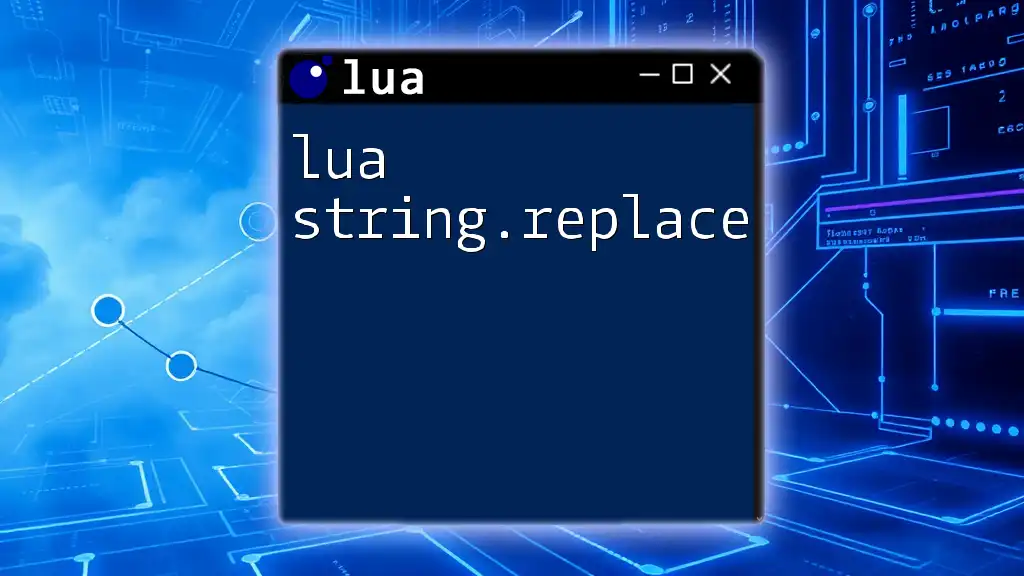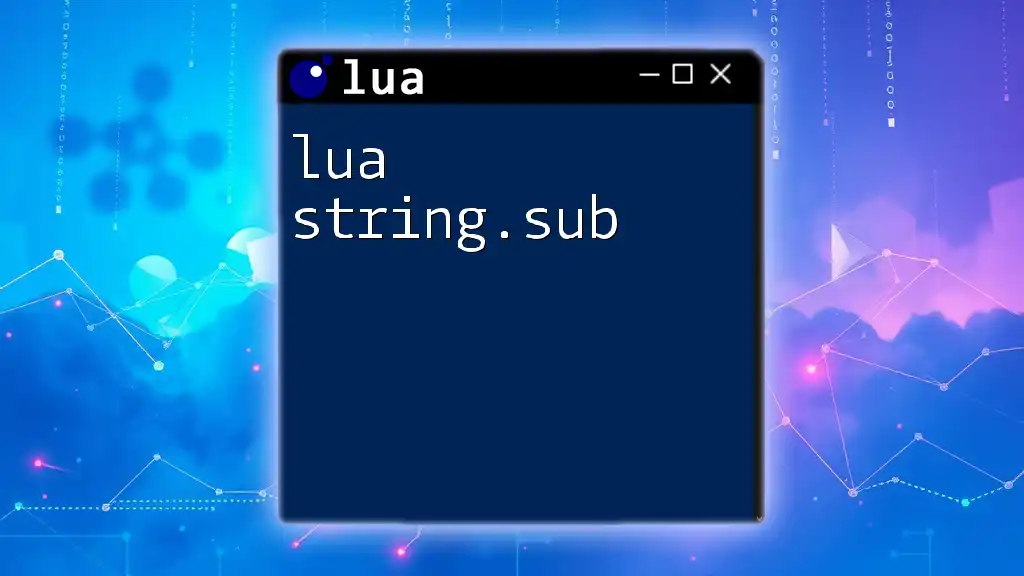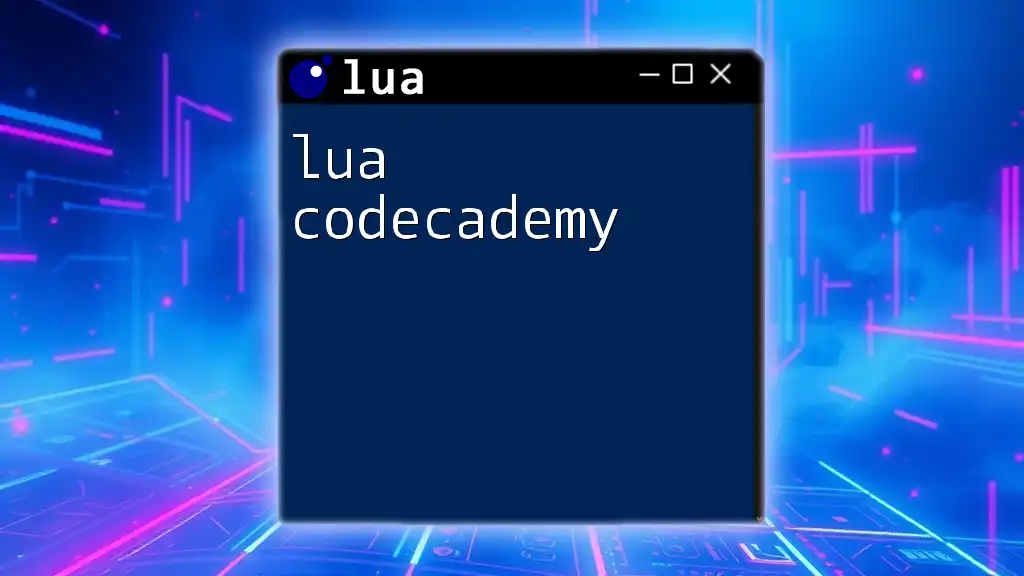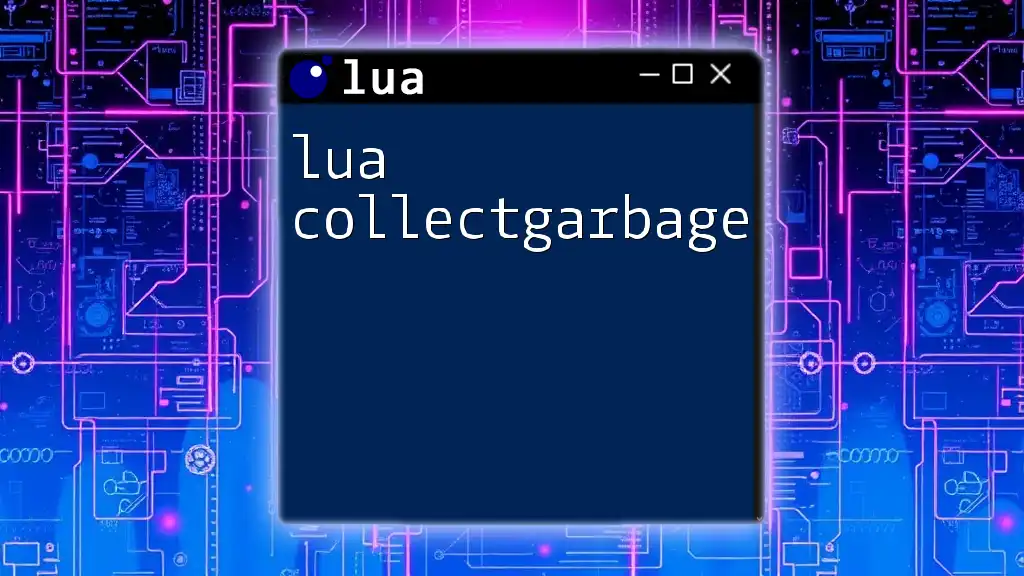A Lua coding test assesses your understanding of Lua programming concepts by challenging you to solve problems using concise and effective Lua commands.
Here's a simple example to demonstrate a Lua function that calculates the factorial of a number:
function factorial(n)
if n == 0 then
return 1
else
return n * factorial(n - 1)
end
end
print(factorial(5)) -- Output: 120
Understanding Lua
What is Lua?
Lua is a lightweight and fast scripting language, designed primarily for embedded use in applications. It originated in Brazil in the early 1990s and has gained popularity due to its simplicity and flexibility. Key features of Lua include its efficient memory management, powerful data description constructs, and easy integration with other languages, making it ideal for game development and high-performance applications.
Why Learn Lua?
Mastering Lua can open up numerous opportunities. It is widely used in game development, particularly with engines like Corona SDK and Love2D. Lua is also utilized in various embedded systems and applications where resources are limited. By learning Lua, you not only acquire a valuable skill but also enhance your programming toolkit, making you more versatile and marketable in the software development field.
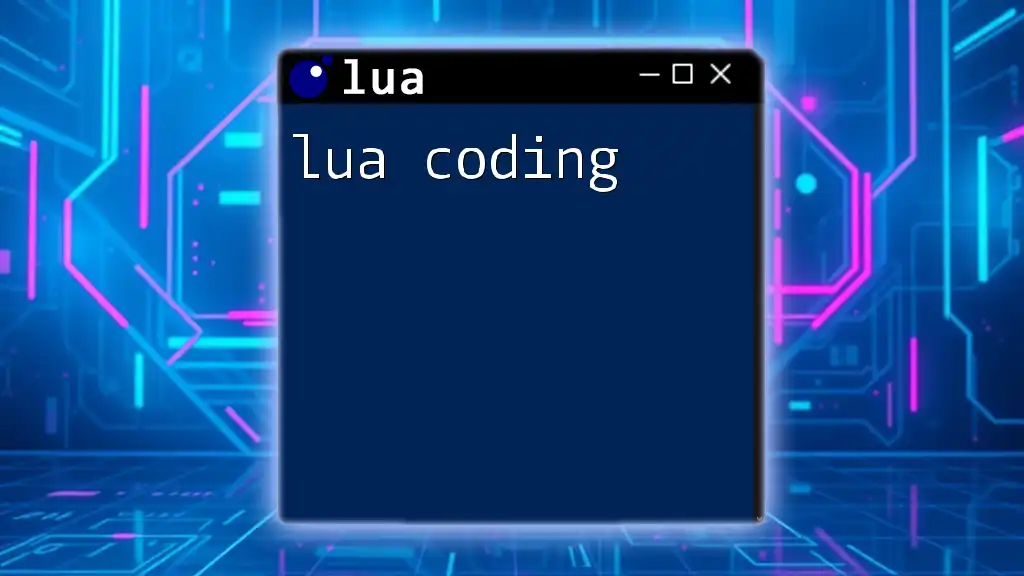
What is a Lua Coding Test?
Purpose of a Coding Test
A Lua coding test serves as an effective means of assessing a developer's knowledge of the language. It evaluates not only their understanding of Lua syntax and semantics but also their capacity for problem-solving and efficiency in coding. Such tests simulate real-world scenarios that a programmer may encounter, making them crucial for both personal growth and hiring processes.
Common Types of Lua Coding Tests
Coding tests can generally be divided into three primary categories:
-
Algorithmic Challenges: These focus on a programmer's grasp of algorithms and data structures. They often involve problems that require computational thinking and an understanding of complexities.
-
Real-world Problems: These test the ability to solve practical scenarios, mirroring issues developers face in actual projects, such as creating functions that manage game states.
-
Debugging Tasks: In these tests, participants are provided with existing Lua scripts that contain errors. The goal is to identify and fix the bugs, demonstrating not only familiarity with the language but also analytical skills.
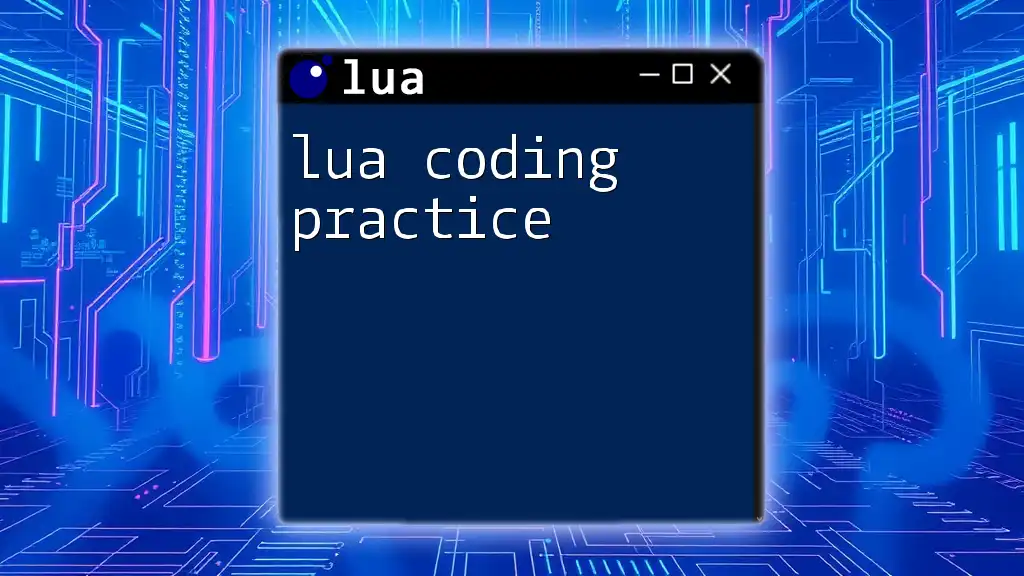
Preparing for a Lua Coding Test
Key Concepts to Understand
A strong foundation in Lua's core concepts is essential for succeeding in coding tests.
-
Variables and Data Types: Understanding how to declare and utilize different data types such as strings, numbers, and tables is fundamental.
local num = 42 -- Number local greeting = "Hello" -- String local colors = {"Red", "Green", "Blue"} -- Table -
Control Structures: Knowledge of conditional statements and loops is crucial. For instance, a simple `for` loop can iterate through a series of values.
for i=1, 10 do print(i) end -
Functions: Creating, calling, and returning values from functions is a core part of any programming test.
function add(a, b) return a + b end print(add(5, 3)) -- Outputs: 8
Essential Libraries and Modules
Familiarity with Lua’s robust standard libraries can significantly enhance your coding prowess. Modules like string, math, and table offer built-in functions that can simplify your coding tasks and make solutions more elegant.
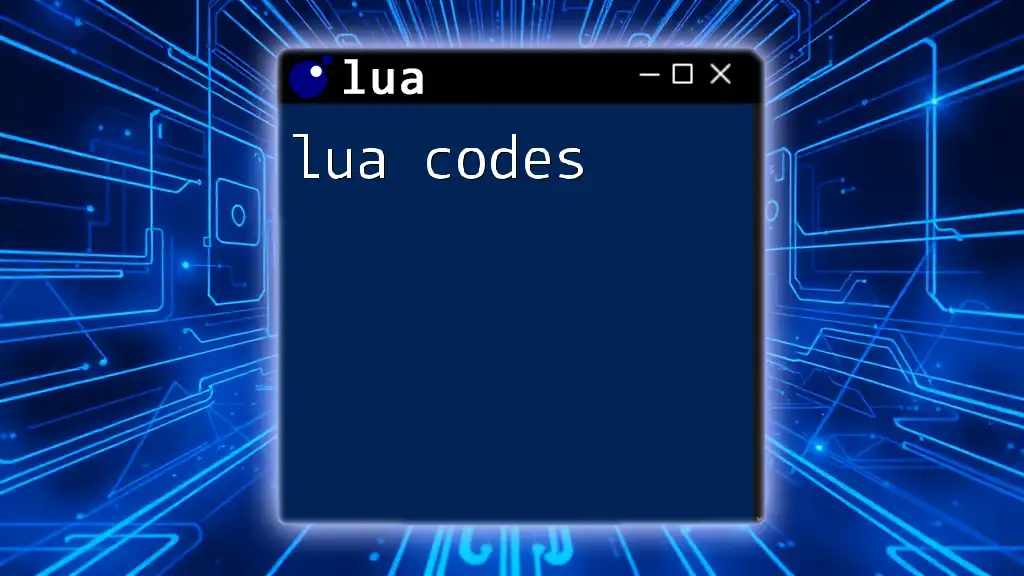
Sample Coding Test Questions
Algorithmic Challenge Example
Problem Statement: Write a function that reverses a string in Lua.
Here's a simple solution that utilizes Lua's built-in string library:
function reverseString(str)
return str:reverse()
end
print(reverseString("Lua")) -- Output: aul
Real-world Problem Example
Problem Statement: Develop a function that calculates the average of numbers contained in a table.
This function iterates through the table, summing the values and dividing by the count:
function average(tbl)
local sum = 0
for _, value in ipairs(tbl) do
sum = sum + value
end
return sum / #tbl
end
print(average({10, 20, 30})) -- Outputs: 20
Debugging Example
Problem Statement: Identify and fix the error in the following code snippet, which is intended to multiply two numbers.
function multiply(a, b)
return a * b
end
print(multiply(5)) -- Missing argument error
The error arises because the function requires two arguments. A fix would involve invoking the function with both needed parameters:
print(multiply(5, 3)) -- Outputs: 15
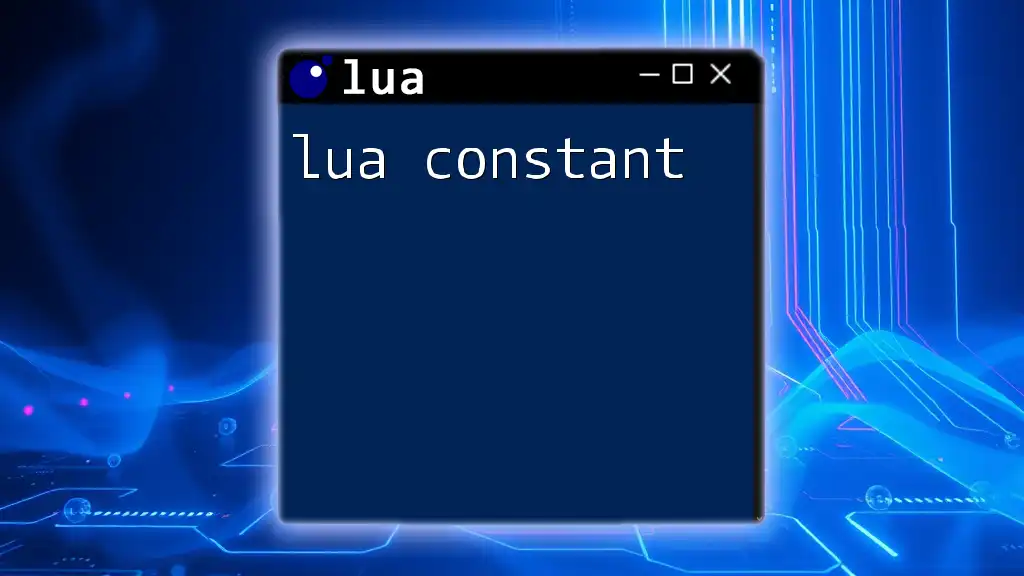
Strategies for Success in Lua Coding Tests
Practice Coding Challenges
To excel in a Lua coding test, regularly engaging with coding challenges on platforms like LeetCode or HackerRank can sharpen your skills. These platforms offer various problems that can enhance your coding abilities and familiarization with common patterns seen in interviews.
Mock Coding Tests
Simulating real tests can help you acclimate yourself to the pressure of coding in a timed setting. Setting a timer and replicating the conditions of a live test can significantly improve your time management skills and build your confidence.
Reviewing Sample Solutions
Analyzing well-crafted solutions provides insights into different problem-solving strategies. Learning from these solutions can broaden your understanding and help you recognize common mistakes to avoid in your coding tests.
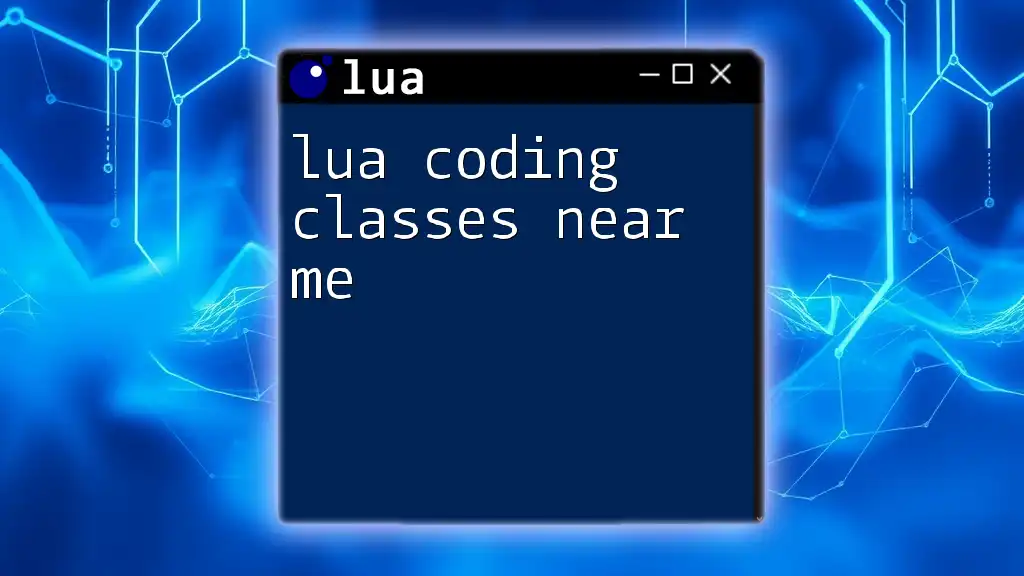
Best Tools for Lua Development
Integrated Development Environments (IDEs)
Choosing the right development environment can impact your coding efficiency. Recommended IDEs for Lua development include ZeroBrane Studio, which is tailored specifically for Lua, and Visual Studio Code, a versatile option that supports multiple programming languages.
Online Coding Platforms
Various online platforms are dedicated to practicing Lua, allowing you to tackle diverse coding challenges and improve your skills. Resources such as Codecademy and Lua's official documentation can help solidify your knowledge and expose you to advanced concepts.

Conclusion
In summary, a Lua coding test is an excellent mechanism for demonstrating your proficiency with the language. By preparing diligently and practicing regularly, you can approach such tests with confidence. If you're eager to advance your skills, consider joining our training program, where we provide in-depth knowledge and hands-on practice in Lua programming.
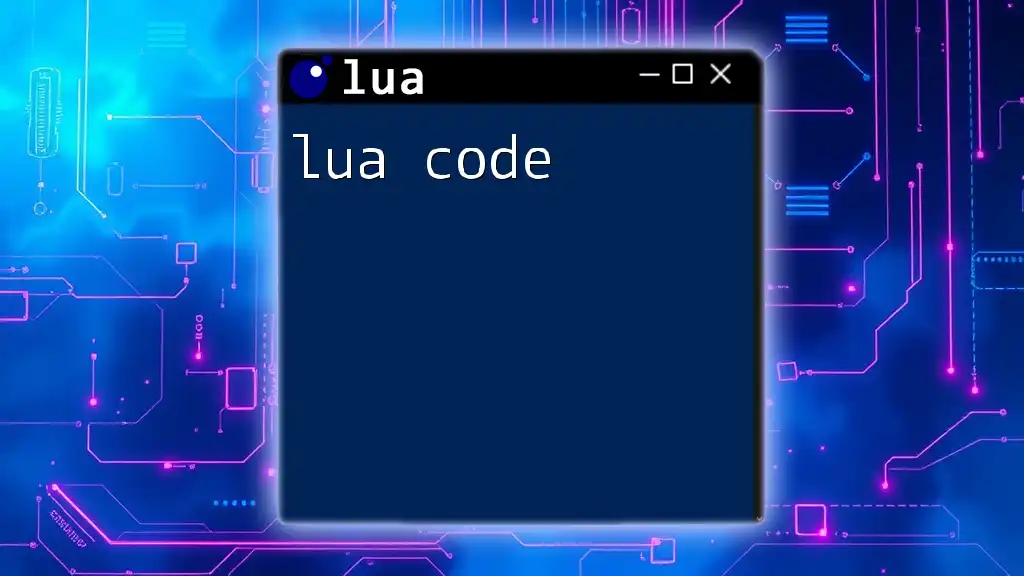
Additional Resources
For further exploration of Lua, refer to the official Lua documentation, consider reading recommended books such as "Programming in Lua," and seek out online courses to deepen your understanding and proficiency in this versatile programming language.

